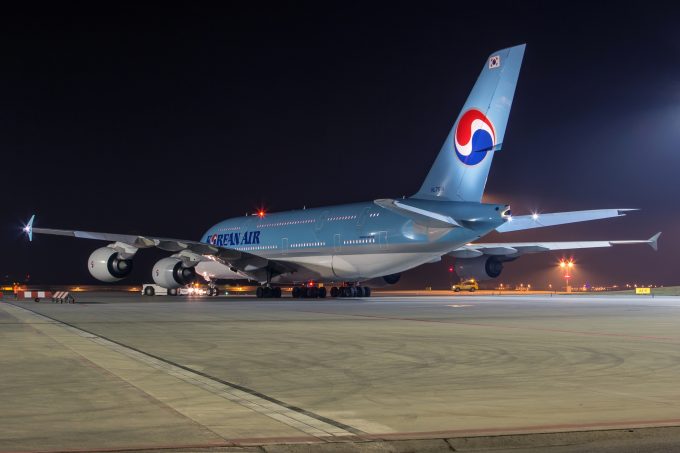Suitors move up to starting line for race for Asiana air cargo arm
As Korean Air and Korea Development Bank gear up to select a preferred buyer for ...

Korean Air’s takeover of Asiana Airlines still hangs in the balance, and it appears the European Commission is still assessing the impact and has extended its deadline to February.
Early this year, competition authorities, primarily in the EU and US, expressed concerns that the acquisition of Asiana may restrict competition in several passenger and cargo markets.
According to data from CH-Aviation, the proposed KRW1.8 trillion won ($1.37bn) merger will see Korean Air take a 63.9% stake in Asiana, its aircraft and infrastructure.
Additional data from AviationValues shows Korean Air has a fleet of 162 aircraft (144 active), including four B747-400Fs, seven B747-8Fs and 12 B777-200LRFs, and Asiana has 79 aircraft (77 active), with 10 B747-400Fs and a single B767-300F.
A combined fleet would create a significant cargo operation, but the overall impact on internal competition remains unclear. However, Korean Air said it would monitor market dynamics to respond to any changes in the regional air cargo landscape.
A status update to The Loadstar last week, indicated that the airline was still cooperating with the competition authorities to obtain merger approval at the earliest opportunity.
Meanwhile, in the US, allegations have surfaced that Korean is blocking requests by Miami-based Amerijet to offer scheduled services to and from South Korea, and the situation has relegated Amerijet to operating charter flights to Korea. Korean Air has reportedly rejected the claims.
Meanwhile, Korean Air expects the growth in e-commerce demand seen during the pandemic to continue in the post-pandemic period, particularly in the US market. According to the airline, air cargo demand is strong especially at the year-end, during Black Friday, Christmas, and New Year’s celebrations.
The global expansion of protectionist trade policies, initiated by the trade tensions between the US and China, may increase uncertainty in the air cargo business. Korean said it was monitoring the trend in which global corporations are relocating production bases from China to South-east Asia, and it will respond to market changes, including increasing cargo supply in the South-east Asian market.
Globally, the airline foresees a sustained decrease in air cargo demand and intensified pricing competition, and it observes similar market conditions in Japan and the Asia region.
In September, Korean Air cargo launched a sustainable aviation fuel (SAF) programme for its air cargo operations with customers and forwarders.
“Given there are only a handful of Asian airlines operating SAF programmes in the cargo sector, we have received enquiries expressing interest from various global forwarders, and we plan to expand our climate change response initiatives in collaboration with diverse clients,” said the airline.
And Korean Air Cargo anticipates external volatility to persist in the new year. Geopolitical tensions will continue to influence the economic outlook, and trade disputes may result in further sanctions and, in turn, regional logistics demand imbalances, it said. Production cuts by major oil-producing countries may also contribute to significant oil price volatility in the short-term.
The airline’s approach involves securing “a stable demand base” through fortifying collaboration with its key customers.
“We aim to flexibly operate our network, adjust operational frequencies based on demand fluctuations and to coordinate closely with our passenger network for belly cargo supply,” the airline stated.
On the operational aspect, Korean Air expects to enhance operational efficiency through the renovation of Korean Air cargo terminals in Incheon and New York JFK.
Comment on this article